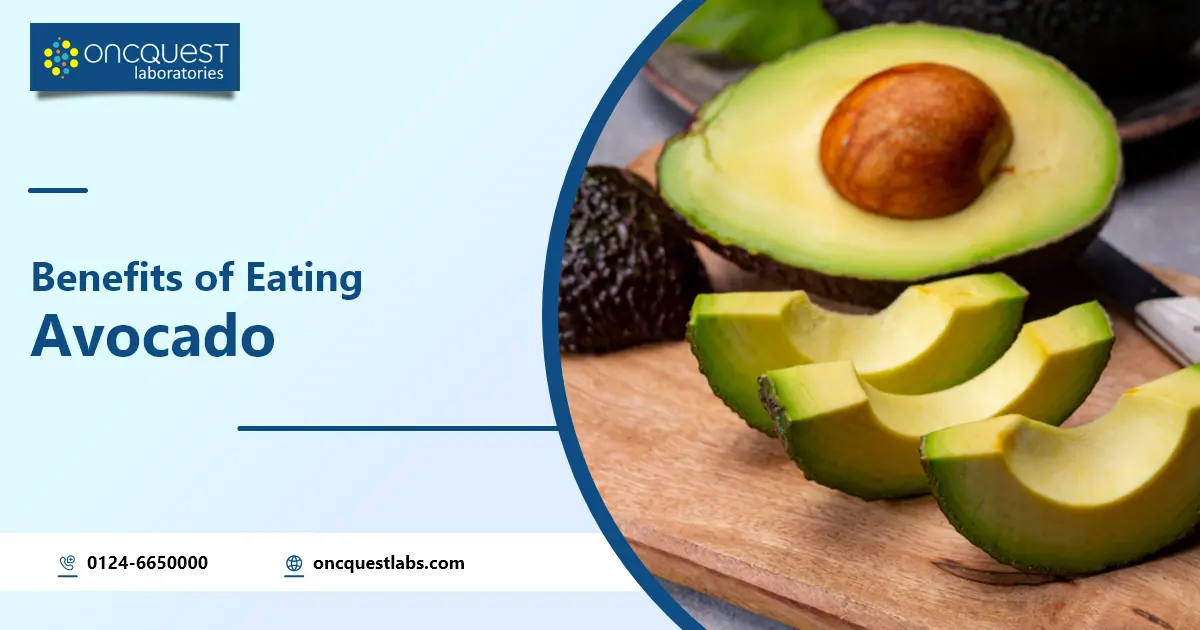Avocado, the creamy and versatile fruit, has skyrocketed in popularity in recent years, becoming a staple in kitchens worldwide. Beyond its delicious taste and smooth texture, avocados pack a powerful nutritional punch, offering a plethora of health benefits. From heart health to glowing skin, this humble fruit boasts an impressive array of nutrients that can transform your well-being. In this guide, we’ll delve into the fascinating world of avocados, uncovering the science behind their health benefits and exploring creative ways to incorporate them into your diet. Get ready to discover why avocados are not just a trendy food fad but a true superfood for both body and mind.
Contents
- 1 Nutrients in Avocado
- 2 14 Health Benefits of Avocado
- 2.1 Good for Your Heart Health
- 2.2 Help You Lose Weight
- 2.3 May Help Prevent Osteoporosis
- 2.4 Components May Prevent Cancer
- 2.5 Supporting Fetal Health
- 2.6 Boost Your Mood
- 2.7 Blood Sugar Regulation
- 2.8 Eye Health
- 2.9 Digestive Health
- 2.10 Improve Skin Health
- 2.11 Preserve Your Brain
- 2.12 Bone Health
- 2.13 Anti-inflammatory Properties
- 2.14 Nutrient Absorption
- 3 Avocado Seed Benefit
- 4 Benefits of Avocado for Men
- 5 Benefits of Avocado for Women
- 6 Avocado Benefits During Pregnancy
- 7 Ways to Incorporate Avocado into your Diet
- 8 Conclusion
- 9 FAQ
Nutrients in Avocado
Sure, here’s a table outlining the nutrients found in avocados:
| Nutrient | Amount per 100g |
| Calories | 160 |
| Fat | 15g |
| Saturated Fat | 2.1g |
| Monounsaturated Fat | 10g |
| Polyunsaturated Fat | 1.8g |
| Cholesterol | 0mg |
| Sodium | 7mg |
| Potassium | 485mg |
| Carbohydrates | 9g |
| Fiber | 7g |
| Sugars | 0.7g |
| Protein | 2g |
| Vitamin A | 146 IU |
| Vitamin C | 10mg |
| Vitamin E | 2.1mg |
| Vitamin K | 21μg |
| Folate | 81μg |
| Calcium | 12mg |
| Iron | 0.6mg |
| Magnesium | 29mg |
| Phosphorus | 52mg |
| Zinc | 0.6mg |
| Copper | 0.2mg |
| Manganese | 0.2mg |
These values are approximate and can vary based on factors such as ripeness and variety.
14 Health Benefits of Avocado
Avocado is a nutrient-rich fruit that offers a wide array of health benefits:
Good for Your Heart Health
Avocados promote heart health through their high monounsaturated fat content, particularly oleic acid, which helps lower levels of bad cholesterol (LDL) while increasing good cholesterol (HDL). This balance reduces the risk of heart disease and stroke. Additionally, avocados are rich in potassium, a mineral that regulates blood pressure by counteracting the effects of sodium. Their fiber content further supports heart health by promoting satiety and aiding in weight management, both of which contribute to overall cardiovascular wellness.
Help You Lose Weight
Avocados are a valuable addition to any weight management plan. Despite their rich, creamy texture, they’re packed with healthy fats and fiber, promoting feelings of fullness and satisfaction. By including avocados in your meals, you can curb cravings and reduce the likelihood of overeating. Plus, their nutrient density ensures you’re getting essential vitamins and minerals while keeping calorie intake in check. With avocados, you can enjoy delicious, satisfying meals that support your weight management goals without sacrificing flavor or nutrition.
May Help Prevent Osteoporosis
Avocados may help prevent osteoporosis due to their vitamin K content, which supports calcium absorption and bone mineralization. Additionally, avocados contain vitamin D and magnesium, crucial for bone health. These nutrients work synergistically to maintain bone density and strength, reducing the risk of fractures and osteoporosis. Incorporating avocados into a balanced diet can contribute to overall bone health, especially when combined with regular physical activity and other bone-supporting nutrients.
Components May Prevent Cancer
Certain components found in avocados, such as antioxidants (like carotenoids and tocopherols), fiber, and phytochemicals (such as flavonoids and phenolic acids), have been associated with potential cancer-preventive effects. These compounds exhibit antioxidant and anti-inflammatory properties that may help protect cells from damage, inhibit the growth of cancer cells, and promote overall cellular health. While more research is needed to fully understand avocado’s role in cancer prevention, incorporating them into a balanced diet rich in fruits and vegetables can contribute to a holistic approach to reducing cancer risk.
Supporting Fetal Health
Avocados support fetal health due to their rich content of folate (vitamin B9), essential for fetal development, especially in early pregnancy. Adequate folate intake helps prevent neural tube defects and supports proper brain and spinal cord formation in the developing fetus. Avocados also provide essential nutrients like vitamin E, potassium, and healthy fats, which contribute to overall maternal health and fetal growth. Including avocados in a pregnancy diet can ensure sufficient nutrient intake crucial for both maternal well-being and optimal fetal development.
Boost Your Mood
Avocados can boost your mood due to their nutrient content, including vitamins B6, folate, and omega-3 fatty acids. These nutrients play key roles in neurotransmitter synthesis and brain function, which are essential for regulating mood and reducing symptoms of depression and anxiety. Additionally, avocados contain tryptophan, a precursor to serotonin, known as the “feel-good” hormone. Incorporating avocados into your diet can help stabilize mood, enhance cognitive function, and promote overall mental well-being.
Blood Sugar Regulation
Avocados play a beneficial role in blood sugar regulation due to their low glycemic index and high fiber content. The fiber slows down the absorption of carbohydrates, preventing spikes in blood sugar levels after meals. Additionally, avocados contain healthy fats that further aid in stabilizing blood sugar levels. This makes them an excellent choice for individuals with diabetes or those looking to manage their blood sugar levels effectively. Incorporating avocados into meals can help promote steady energy levels and reduce the risk of insulin resistance.
Eye Health
Avocados are a boon for eye health due to their rich content of lutein and zeaxanthin, powerful antioxidants that protect against age-related macular degeneration and cataracts. These nutrients are concentrated in the eye’s macula, where they help filter harmful blue light and neutralize free radicals, thus safeguarding vision. By regularly incorporating avocados into your diet, you can nourish your eyes and reduce the risk of common vision problems, ensuring clarity and vitality for years to come.
Digestive Health
Avocados support digestive health with their rich fiber content, aiding in regular bowel movements and preventing constipation. Additionally, the healthy fats found in avocados facilitate nutrient absorption and promote the growth of beneficial gut bacteria. This combination promotes a healthy digestive system, ensuring optimal nutrient uptake and waste elimination. By including avocados in your diet, you can support digestive function and maintain overall gut health, contributing to improved digestion and overall well-being.
Improve Skin Health
Avocados are a boon for skin health, thanks to their rich content of vitamins E and C, which act as potent antioxidants, combating oxidative stress and inflammation. Additionally, their high levels of monounsaturated fats and biotin help maintain skin elasticity and hydration, warding off dryness and wrinkles. Regular consumption of avocados or application of avocado-based skincare products can promote a radiant complexion, mitigate signs of aging, and contribute to overall skin vitality.
Preserve Your Brain
Avocados support brain health through their rich content of monounsaturated fats, which enhance blood flow to the brain and reduce inflammation. Additionally, they contain omega-3 fatty acids crucial for cognitive function, potentially aiding in the prevention of age-related cognitive decline. The combination of these nutrients promotes optimal brain function, supporting memory, concentration, and overall cognitive performance. Including avocados in your diet can be a tasty and beneficial way to nourish your brain for long-term health and vitality.
Bone Health
Avocados are a boon for bone health due to their rich vitamin K content, crucial for calcium absorption and bone mineralization. Consuming avocados regularly can enhance bone density, reducing the risk of osteoporosis and fractures. Additionally, avocados contain other nutrients like magnesium and potassium, which support overall bone health and strength. Including avocados as part of a balanced diet can contribute to maintaining healthy bones, ensuring mobility and vitality as you age.
Anti-inflammatory Properties
Avocados boast potent anti-inflammatory properties attributed to their rich content of phytochemicals like polyphenols and flavonoids. These compounds work synergistically to combat inflammation throughout the body, potentially reducing the risk of chronic diseases such as arthritis and cancer. Regular consumption of avocados may help alleviate inflammatory conditions and promote overall health. By incorporating this versatile fruit into your diet, you can harness its natural healing properties and support your body’s defense against inflammation.
Nutrient Absorption
Avocados play a crucial role in enhancing nutrient absorption due to their healthy fat content. These fats, particularly monounsaturated fats, facilitate the absorption of fat-soluble vitamins like vitamin A, D, E, and K. By adding avocados to meals containing these vitamins, you can maximize their absorption and unlock their full health benefits. Whether it’s a salad, sandwich, or smoothie, incorporating avocados into your diet can amplify the nutritional value of your meals and support overall health and well-being.
Incorporating avocados into your diet can contribute to overall health and well-being, thanks to their impressive nutritional profile and numerous health-promoting properties.
Avocado Seed Benefit
While the flesh of avocados is widely celebrated for its health benefits, the avocado seed, often discarded, also contains certain potential benefits:
- Antioxidant Properties: Avocado seeds are rich in antioxidants, including phenolic compounds and flavonoids, which help combat oxidative stress and reduce inflammation in the body.
- Fiber Content: Avocado seeds contain soluble fiber, which can aid in digestion, promote bowel regularity, and support gut health. Fiber also helps regulate blood sugar levels and may contribute to weight management by promoting feelings of fullness.
- Cardiovascular Health: Some studies suggest that avocado seeds may have potential benefits for cardiovascular health. The antioxidants and soluble fiber in avocado seeds may help lower cholesterol levels and reduce the risk of heart disease.
- Antimicrobial Properties: Avocado seeds contain compounds with antimicrobial properties, which may help inhibit the growth of harmful bacteria and fungi in the body, supporting immune function and overall health.
- Skin Health: Ground avocado seed powder can be used topically as an exfoliating scrub or added to skincare products. The antioxidants in avocado seeds may help protect the skin from oxidative damage and promote a youthful appearance.
- Anti-Inflammatory Effects: Avocado seeds contain compounds that exhibit anti-inflammatory properties, which may help reduce inflammation associated with conditions like arthritis and other inflammatory disorders.
- Potential Cancer Prevention: Some research suggests that the antioxidants in avocado seeds may have anticancer properties, helping to prevent the growth and spread of cancer cells. However, more studies are needed to fully understand the extent of these potential benefits.
It’s worth noting that while avocado seeds offer potential health benefits, they are quite hard and bitter, making them challenging to consume directly. However, they can be dried, ground into a powder, and added to smoothies, soups, or other recipes to reap their nutritional benefits. As with any supplement or addition to your diet, it’s essential to consume avocado seeds in moderation and consult with a healthcare professional if you have any underlying health conditions or concerns.
Benefits of Avocado for Men
Avocados offer a multitude of health benefits that are particularly advantageous for men. Rich in monounsaturated fats, avocados can help lower LDL (bad) cholesterol levels and reduce the risk of heart disease, a common concern among men. The potassium content in avocados supports healthy blood pressure levels, further contributing to cardiovascular health. Additionally, avocados contain antioxidants like vitamins E and C, which may help reduce the risk of prostate cancer and inflammation, benefiting prostate health.For men concerned with fertility, avocados provide vitamin E, which is associated with improved sperm motility and morphology. Beyond reproductive health, avocados are packed with nutrients like potassium and magnesium that support muscle function and aid in post-exercise recovery. The presence of vitamin K and folate supports cognitive function, potentially reducing the risk of cognitive decline as men age.
Moreover, the healthy fats in avocados are essential for hormone production, contributing to testosterone levels and overall hormonal balance. Despite their calorie density, avocados’ fiber and healthy fats promote satiety and weight management when incorporated into a balanced diet. Overall, avocados offer comprehensive health benefits that can enhance men’s well-being across various aspects of health. Read for more about Benefits of Avocado for Men
Benefits of Avocado for Women
Avocados offer a plethora of health benefits that cater specifically to women’s well-being. Rich in monounsaturated fats, avocados support heart health by lowering LDL (bad) cholesterol levels and reducing the risk of cardiovascular disease, a significant concern for women. The high fiber and healthy fats in avocados also contribute to weight management by promoting satiety and aiding in digestion. For women concerned about skin and hair health, avocados provide essential nutrients like vitamins E and C, which act as antioxidants to combat oxidative stress, enhance skin elasticity, and promote hair strength and shine. Avocados are also beneficial during pregnancy due to their folate content, crucial for fetal development and reducing the risk of neural tube defects.
Additionally, avocados support hormonal balance with their healthy fat content, essential for menstrual health and managing symptoms of menopause. Their vitamin K content further supports bone health, potentially reducing the risk of osteoporosis. By incorporating avocados into their diet, women can enjoy a range of health benefits that promote overall well-being and vitality. Read for more about Benefits of Avocado for Women
Avocado Benefits During Pregnancy
Avocados are highly beneficial during pregnancy, offering a range of nutrients that support both maternal health and fetal development. Rich in vitamins, minerals, healthy fats, and fiber, avocados provide essential nourishment that can contribute significantly to a healthy pregnancy.Firstly, avocados are a great source of folate (vitamin B9), which is crucial for preventing neural tube defects in the developing fetus during the early stages of pregnancy. Adequate folate intake is recommended even before conception, making avocados a valuable addition to pre-pregnancy and prenatal diets.
Moreover, avocados are packed with potassium, even more than bananas, which helps maintain healthy blood pressure levels—critical for preventing conditions like preeclampsia that can endanger both the mother and baby. The high potassium content also supports proper muscle function and fluid balance.Furthermore, the healthy fats found in avocados, including monounsaturated fats and omega-3 fatty acids, are essential for fetal brain development and overall growth. These fats are also beneficial for the mother, aiding in hormone regulation and nutrient absorption, which is particularly important during pregnancy when nutrient needs are increased Read for more about Avocado Benefits During Pregnancy
Ways to Incorporate Avocado into your Diet
Incorporating avocado into your diet is easy and versatile. Here are some delicious ways to enjoy this nutritious fruit:
- Avocado Toast: Mash ripe avocado onto whole-grain toast and top with your favorite seasonings such as salt, pepper, chili flakes, or a drizzle of olive oil. Add additional toppings like sliced tomatoes, poached eggs, or smoked salmon for extra flavor and nutrition.
- Guacamole: Whip up a batch of homemade guacamole by mashing ripe avocado with lime juice, minced garlic, diced onions, chopped cilantro, and diced tomatoes. Enjoy with tortilla chips, as a topping for tacos, or as a dip for veggies.
- Smoothies: Add half a ripe avocado to your favorite smoothie recipe for added creaminess and nutrition. Avocado pairs well with ingredients like spinach, banana, berries, almond milk, and protein powder for a satisfying and nutritious blend.
- Salads: Slice avocado and add it to salads for a creamy texture and extra flavor. Pair avocado with mixed greens, cherry tomatoes, cucumbers, red onions, and your choice of protein such as grilled chicken or shrimp for a nutritious meal.
- Sandwiches and Wraps: Add slices of avocado to sandwiches and wraps for a creamy and nutritious addition. Avocado pairs well with ingredients like turkey, bacon, lettuce, tomato, and whole-grain bread or tortillas.
Conclusion
In conclusion, avocado is not just a delicious fruit; it’s a nutritional powerhouse that offers a myriad of health benefits. From heart health to weight management, avocado’s rich nutrient profile makes it a valuable addition to any diet. Its versatility allows for endless culinary possibilities, making it easy to incorporate into meals and snacks. By enjoying avocado regularly, you can support your overall health and well-being, ensuring you stay energized, nourished, and satisfied.
FAQ
How do I choose a ripe avocado?
Look for avocados that yield slightly to gentle pressure when squeezed but are not mushy. The skin should be dark green to almost black and free from any large indentations or bruises. You can also remove the small stem at the top; if it comes off easily and is green underneath, the avocado is ripe.
Why avocado is not good for you?
While avocados offer many health benefits, consuming them excessively can contribute to weight gain due to their high calorie and fat content.
Can I freeze avocados?
Yes, you can freeze avocados. Simply scoop out the flesh, mash it, and place it in an airtight container or freezer bag. You can also freeze avocado halves or slices by brushing them with lemon or lime juice to prevent browning before freezing.
Are there any risks associated with eating avocados?
While avocados are generally safe for consumption, some individuals may be allergic to them. Additionally, avocados are calorie-dense, so it’s essential to enjoy them in moderation, especially if you’re watching your calorie intake.





